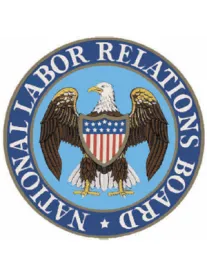National Labor Relation Board General Counsel Richard F. Griffin has issued a Memorandum to NLRB Regional Directors, Officers-in-Charge, and Resident Officers proposing a dramatic change in Board law on whether, and under what circumstances, an employer may unilaterally withdraw recognition from a union representing its employees. Memorandum GC 16-03 (May 9, 2016). If adopted by the Board, a unilateral withdrawal would be unlawful unless it follows an employer victory in a Board-supervised “RM” election (following an employer’s filing a petition for an election because it has a good faith doubt about the incumbent union’s majority support) or “RD” election (following an employee’s filing a petition for an election seeking to oust the incumbent union).
Fifteen years ago, in Levitz Furniture Company of the Pacific, Inc., 333 NLRB 717 (2001), the Board rejected a similar proposal by the then-General Counsel. In that case, the Board held that “an employer may unilaterally withdraw recognition from an incumbent union only where the union has actually lost the support of the majority of the bargaining unit employees,” based on objective evidence. It “rejected the General Counsel’s position that employers should not be permitted to withdraw recognition absent the results of Board elections.” The Board sought to encourage reliance on NLRB-conducted elections, but not bar employers from acting unilaterally where evidence indicated a union actually had lost its majority.
The current proposal by the General Counsel would have the Board reverse the Levitz decision, barring any lawful unilateral withdrawal of recognition by an employer. Indeed, the Memorandum urges all Regional offices to treat such unilateral withdrawals as a violation of Section 8(a)(5) of the National Labor Relations Act. It also exhorts the Regions to “include in their briefs to administrative law judges and to the Board [a] model brief section” on these issues prepared by the General Counsel and attached to the Memorandum.
In support of this proposed new rule, the General Counsel points out, among other things, that the Board in Levitz left open the possibility that it would reconsider its holding in that case “if future experience proves” the Levitz rule unworkable or contrary to the purposes of the Act. He also argues that “[e]xperience has shown that the option left available under the Levitz framework . . . has proven problematic” and that “[t]his proposed rule will benefit employers, employees, and unions alike . . . .” His memorandum, however, does not explain these conclusions. Employers may be skeptical that the elimination of a rule that permits an employer to unilaterally withdraw recognition from a union that has lost its employees’ support, thus permitting it to relieve employees of a representative they no longer want, would benefit it or its employees. Nevertheless, whether the General Counsel’s belief is borne out remains to be seen.





 />i
/>i
